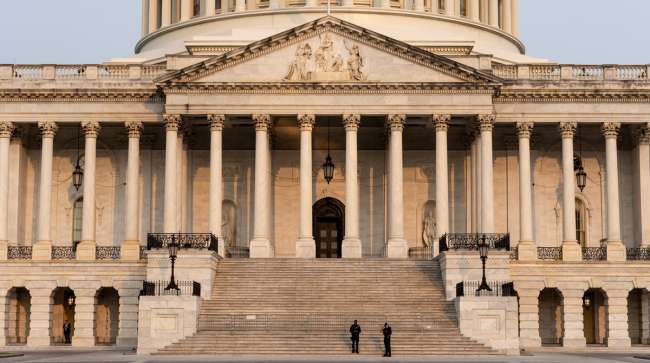Revised Tax and Health Care Proposals
Senate Republicans are gearing up to propose adjustments to significant tax and health care measures in President Donald Trump’s comprehensive $3 trillion economic package. This effort unfolds amidst criticism, notably from Elon Musk, as they race against time to pass the legislation ahead of the July 4 deadline.
Key Changes and Implications
The Senate Finance Committee is expected to unveil a budget-friendly proposal that may diverge from the version of the bill previously approved by the House of Representatives in May. Key discussions are anticipated among lawmakers and Trump officials as they work to align on the tax plan, which has vital implications for various sectors.
High-Stakes Conversations
Businesses operating in energy, health care, manufacturing, and financial services are keenly observing developments this week. Scheduled meetings on June 12 will bring together influential Congress members and Trump representatives to review the proposed tax bill.
A pressing matter for Majority Leader John Thune, Committee Chairman Mike Crapo, and their colleagues will be addressing the $40,000 threshold on state and local tax deductions (SALT cap), an element critical for the bill’s success in the House.
The SALT Cap Debate
Senate Republicans aim to cut down the projected $350 billion cost associated with increasing the SALT cap from $10,000 to $40,000 for individuals earning under $500,000. However, House Speaker Mike Johnson, alongside other Republicans from high-tax states, warns that altering the SALT cap could jeopardize the bill’s chances in the House.
Moreover, service sector pass-through businesses are lobbying to remove a House bill provision that restricts their SALT deductions, creating further complexity in negotiations.
Extending Business Tax Breaks
The Senate Finance Committee is widely projected to propose making permanent three notable business tax breaks. These include the research and development deduction, as well as depreciation and amortization allowances for interest expenses, not to forget the 100% bonus depreciation for specific property types, such as machinery and factories.
Manufacturers and banks eagerly await these extensions, seeing them as essential to continued growth. To offset the costs of these proposals, senators are contemplating modifications to temporary tax breaks for tips and overtime, which Trump champions as part of his appeal to restaurant and hospitality sector workers.
Political Dynamics at Play
White House economic advisor Kevin Hassett indicated that Trump is in favor of adjustments to the SALT deduction but emphasized the need for lawmakers to reach a consensus. Hassett acknowledged the issue as one of negotiation between the Senate and the House, emphasizing the president’s desire for a bill to hit the floor by the Fourth of July.
Challenges in Health Care Cuts
Proposed cuts to Medicaid and Medicare present potentially significant hurdles in shaping the legislative framework. While there is general Republican support for placing new work requirements on Medicaid recipients, moderates like Sen. Lisa Murkowski of Alaska have reservations regarding the timeline given to states to implement these mandates.
Add to this the controversial House provisions about instituting new co-pays for Medicaid beneficiaries and limiting state taxation on Medicaid providers to boost federal reimbursement rates. Senators are contemplating restrictions on billing practices within Medicare Advantage plans, drawing varied responses from health insurers.
The Role of Green Energy Tax Credits
The committee’s deliberations on green energy tax credits have become increasingly contentious. A proposed rollback of these credits could result in nearly $600 billion in savings, igniting friction among Congressional factions.
The conservative House Freedom Caucus has voiced stern warnings against any attempts to reinstate some of the green energy credits in question, labeling such moves as unacceptable. Conversely, a contingent of moderate Republicans is advocating changes that could benefit renewable energy projects, especially initiatives that emerged through previous administrative efforts.
Looking Ahead
As negotiations unfold, banks are particularly focused on safeguarding renewable energy tax credits that contribute to their financial standings. The committee faces mounting pressure to maintain the bill’s integrity, with expectations that much of the House’s original text will remain intact despite the upcoming negotiations.
Senate leaders assert their commitment to the $3 trillion tax plan, keen on presenting a united front as they resist backlash from key stakeholders, including influential political donors voicing dissent against the legislation.
Summary and Transportation Implications
The evolution of this tax bill undoubtedly reverberates through various sectors, including logistics. As tax incentives and business regulations shift, logistics operations may face transformations in compliance and operational costs. GetTransport.com can aid businesses in navigating these logistics challenges, providing versatile, affordable transportation solutions globally—and keeping pace with these changing landscapes.
Even amid the flood of opinions and analyses, it’s crucial to emphasize that personal experience often trumps all the discourse. On GetTransport.com, individuals can utilize an efficient, cost-effective solution for their cargo transportation needs, helping to ensure informed decisions without financial pitfalls or unease.
Start planning your next delivery and secure your cargo with GetTransport.com!

